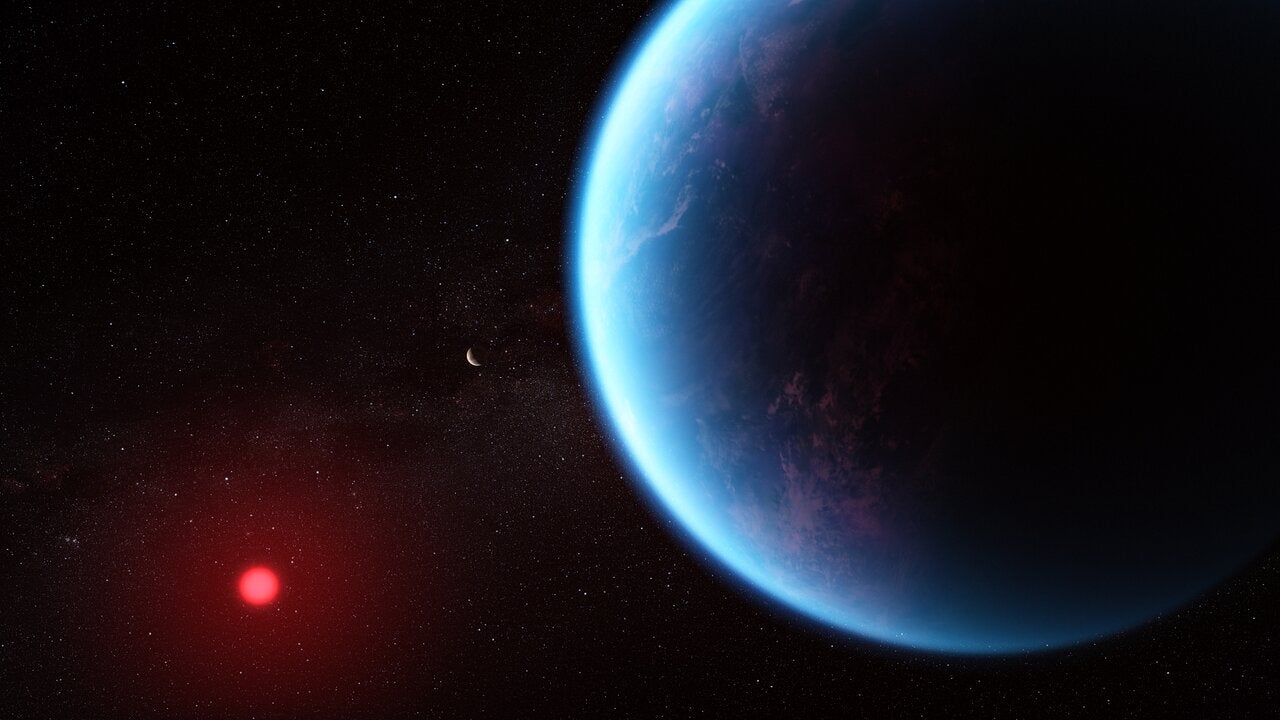Scientists might have seen a ‘life’ molecule on another planet
Dimethyl sulphide is only produced by life on Earth – but scientists are yet to confirm its presence

Scientists may have have detected a molecule that on Earth is only produced by life, in what is a major breakthrough in the search for beings on other planets.
Nasa’s Webb telescope has made a possible detection of dimethyl sulphide or DMS, researchers said. On Earth, that is only produced by life, with the majority of it coming from phytoplankton in marine environments.
Scientists are yet to confirm the observation, and it needs further validation. Further research should confirm whether DMS really is on the distant plant in significant amounts.
But the planet it was detected on, K2-18 b, has also proven definitely exciting for other reasons. Scientists have confirmed that the planet has carbon-bearing molecules including methane and carbon dioxide, itself a major finding for the search for life.
The discovery suggests that K2-18 b could be what researchers call a Hycean exoplanet: one with an atmosphere rich in hydrogen and a surface covered in water. Both conditions are thought to be conducive to any possible alien life.
K2-18 b orbits around a cool dwarf star known as K2-18, and they together sit around 120 light years from Earth. The planet is 8.6 times as massive as Earth: researchers refer to those planets as “sub-Neptunes”, and our Solar System has nothing like them, meaning that they are relatively poorly understood by scientists.
Researchers do not know, for example, what the atmospheres of such worlds might look like. But the new findings suggest that they could be a fruitful place to search for alien life.
“Our findings underscore the importance of considering diverse habitable environments in the search for life elsewhere,” explained Nikku Madhusudhan, an astronomer at the University of Cambridge and lead author on a new paper describing the results.
“Traditionally, the search for life on exoplanets has focused primarily on smaller rocky planets, but the larger Hycean worlds are significantly more conducive to atmospheric observations.“
There may still be conditions that make K2-18 b difficult for life. It is believed to have an ocean surface, but that ocean might be too hot to be habitable – and might not even be liquid at all.
Scientists hope to find out more about the planet as well as other sub-Neptunes with further observations. But they can be difficult to see – even though they are the most common kind of planet known in the galaxy – because they are often covered up by glare from their stars.
Instead, K2-18 b was first spotted by using that glare, and watching for the dip in light that happens as the planet moves in front of its star. The new findings used the same process: examining the starlight with the Webb telescope and looking for the traces left behind of chemicals in the atmosphere.
“These results are the product of just two observations of K2-18 b, with many more on the way,” explained team member Savvas Constantinou of the University of Cambridge. “This means our work here is but an early demonstration of what Webb can observe in habitable-zone exoplanets.”
Further work should give a better picture of those chemicals, and help confirm the possible presence of DMS.
“Our ultimate goal is the identification of life on a habitable exoplanet, which would transform our understanding of our place in the Universe,” said Professor Madhusudhan. “Our findings are a promising step towards a deeper understanding of Hycean worlds in this quest.”
The work is described in a paper, ‘Carbon-bearing Molecules in a Possible Hycean Atmosphere’, that will be published in The Astrophysical Journal Letters.
Subscribe to Independent Premium to bookmark this article
Want to bookmark your favourite articles and stories to read or reference later? Start your Independent Premium subscription today.
Join our commenting forum
Join thought-provoking conversations, follow other Independent readers and see their replies